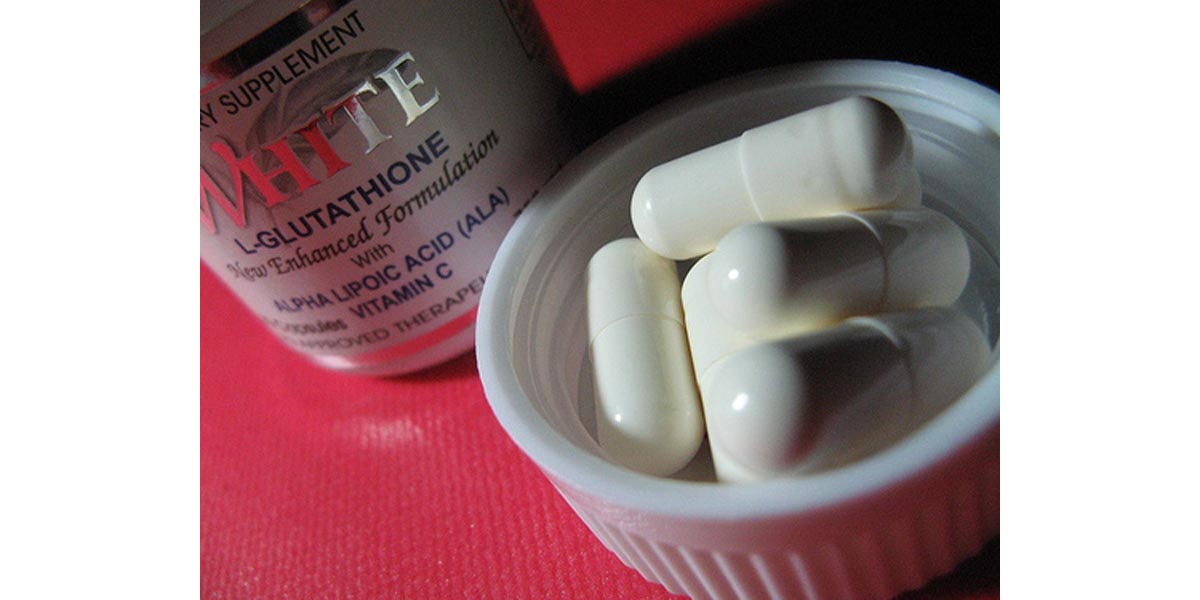Glutathione is one of the several amino acids that are required by the body to perform a number of functions. They play a vital role in cell signaling, gene expression, hormone synthesis, and certain metabolic pathways in the growth, reproduction and immunity. An optimal level of amino acids is required for better health and prevention of a number of disorders. Glutathione has been noted for its antioxidant function. It helps protect against a number of disorders associated with oxidative damage caused by excessive accumulation of free radicals in the body. These free radicals generated as response to inflammation result in a number of autoimmune disorders.

Role in Autoimmunity
Several disorders such as arthritis have been associated with abnormal functioning of the immune system, wherein the cells of the immune system begin attacking the normal and healthy cells. Different mechanisms have been proposed for this abnormality noted in the immune system. The role glutathione is being widely researched in this aspect. It has been noted that glutathione is one of the principal components of the antioxidant defense systems in several of the living cells. Glutathione has been noted to have diverse effects on the immune system.
One of the major roles noted is its effect on the inflammation. Glutathione can either stimulate or inhibit the inflammatory response of the immune system in order to initiate or control the amount of inflammation. The control is quite vital as reduced inflammation cannot have an effect on the harmful microorganisms while excessive inflammation can damage the healthy cells of our body. Optimal levels of glutathione are necessary for its adequate function in the immune system.1, 2
Protects Lymphocyte Function
The antioxidant function of glutathione is beneficial in the protection of the lymphocyte function. It has been noted that glutathione deficiency hampers the ability of the lymphocytes to express its full potential while performing its function. A number of free radicals are formed during the process where lymphocytes are attacking the harmful microorganisms. Antioxidants such as glutathione are necessary to reduce the accumulation of free radicals that can destroy the lymphocytes.3
Read More: Using vitamins, minerals and amino acids in Orthomolecular medicine
Antioxidant Function Protects Immune Cells
The antioxidant function of glutathione has also been noted in other immune cells. The cells of the immune system generate great amounts of free radicals that can affect the functioning of these cells. Glutathione helps in the reduction of the free radical levels thereby protecting the immune cells and helping them to work efficiently.4
Detoxification
Glutathione plays a critical role in the detoxification process within the body. It binds to harmful substances, toxins, heavy metals, and reactive metabolites, facilitating their removal from cells and tissues. Glutathione acts as a cofactor for several enzymes involved in detoxification pathways, particularly in the liver, where it helps convert harmful substances into water-soluble forms for excretion. By supporting detoxification, glutathione aids in maintaining optimal organ function and overall cellular health5.
Regulation of Nitric Oxide
Glutathione plays a role in regulating the levels of nitric oxide (NO) in the body. Nitric oxide is a signaling molecule involved in various physiological processes, including blood vessel dilation, neurotransmission, and immune response. Glutathione helps balance the production and breakdown of nitric oxide, ensuring appropriate levels for optimal cellular function. Imbalances in nitric oxide levels have been associated with various health issues, and glutathione helps maintain this delicate balance6.
Energy Production
Glutathione contributes to energy production within cells. It participates in the conversion of nutrients into ATP (adenosine triphosphate), the primary energy currency of cells. Glutathione supports the function of mitochondria, the cellular powerhouses responsible for ATP synthesis. By optimizing mitochondrial function and energy production, glutathione helps sustain cellular vitality and overall energy levels in the body.
- 1. Wu G. Amino acids: metabolism, functions, and nutrition. Amino Acids. 2009 May, 37(1):1-17. Epub 2009 Mar 20
- 2. Bounous G, Molson J. Competition for glutathione precursors between the immune system and the skeletal muscle: pathogenesis of chronic fatigue syndrome. Med Hypotheses. 1999 Oct, 53(4):347-9
- 3. Hayes JD, McLellan LI. Glutathione and glutathione-dependent enzymes represent a co-ordinately regulated defence against oxidative stress. Free Radic Res. 1999 Oct, 31(4):273-300
- 4. Victor VM, Rocha M, De la Fuente M. Immune cells: free radicals and antioxidants in sepsis. Int Immunopharmacol. 2004 Mar, 4(3):327-47.
- 5. Dasari S, Ganjayi MS, Oruganti L, et al. Glutathione s-transferases detoxify endogenous and exogenous toxic agents-mini review. J Dairy Vet Anim Res.2017, 5(5):157-159.
- 6. Baldelli S, Ciccarone F, Limongi D, Checconi P, Palamara AT, Ciriolo MR. Glutathione and Nitric Oxide: Key Team Players in Use and Disuse of Skeletal Muscle. Nutrients. 2019 Sep 30,11(10):2318. doi: 10.3390/nu11102318. PMID: 31575008, PMCID: PMC6836164.


Your thoughts on this